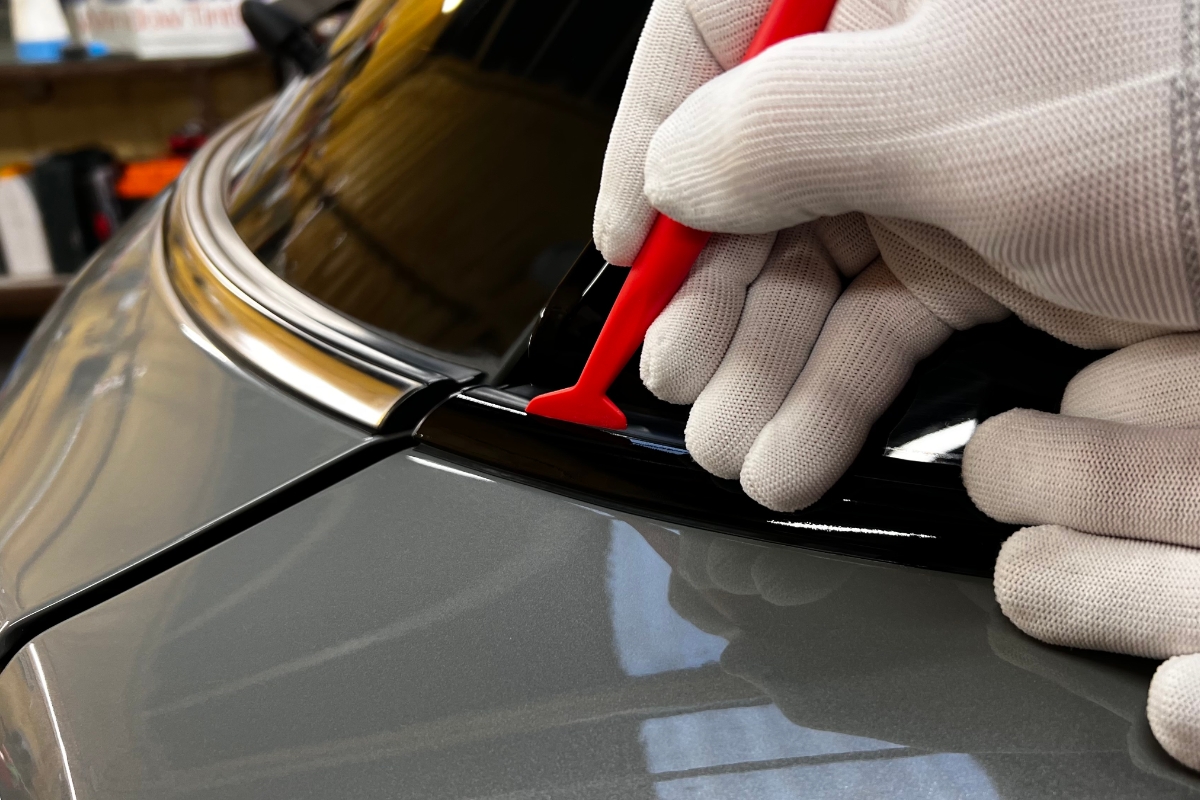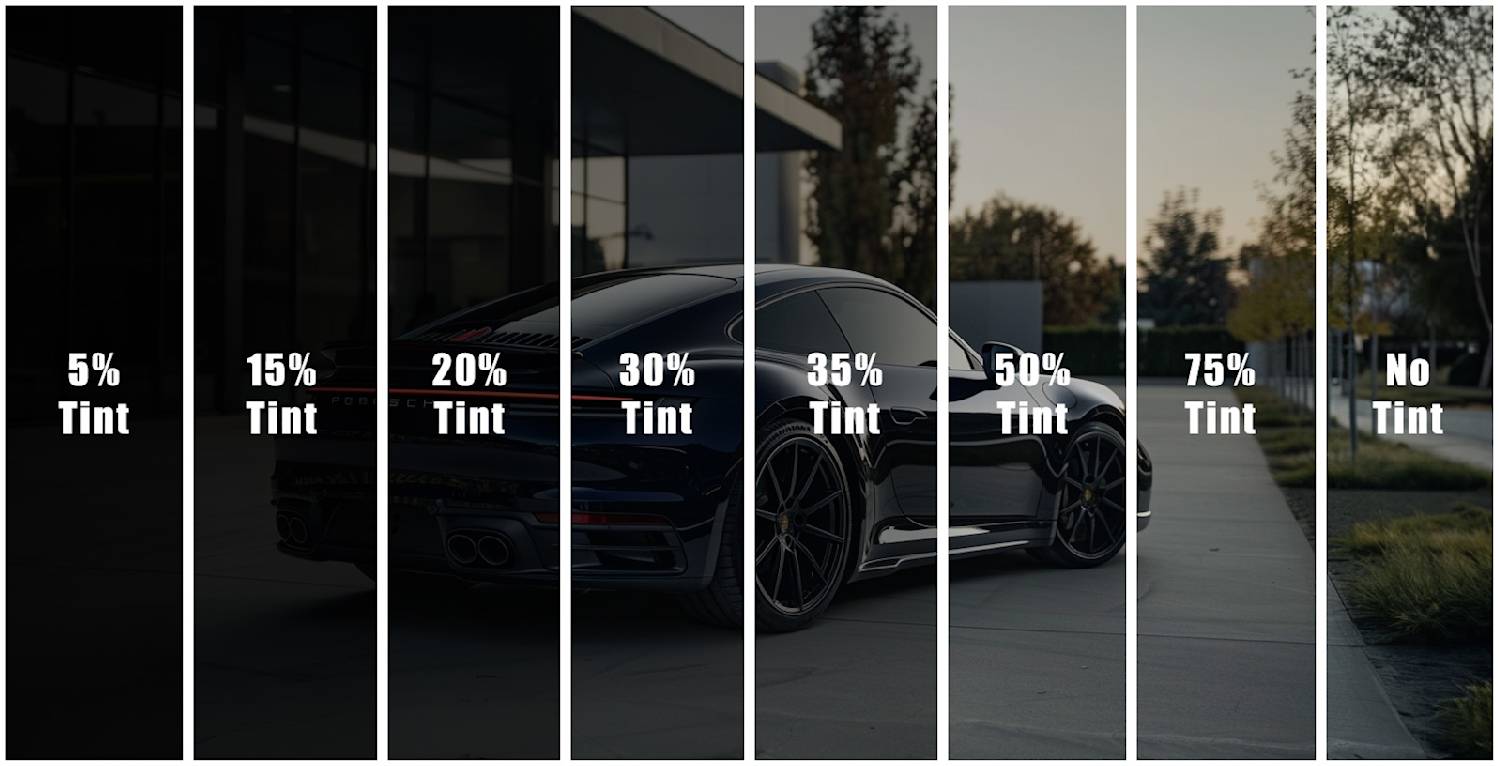Explore Professional Window Tinting Services for Enhanced Car Aesthetics
Wiki Article
Home Window Tinting Rules: What You Need to Know Prior To Tinting Your Vehicle
Comprehending window tinting laws is crucial for any type of lorry owner considering tinting their auto. As you contemplate improving your vehicle's appearance and functionality, it is crucial to grasp not only the lawful ramifications but likewise the sensible considerations that come with selecting the ideal tint.Value of Understanding Tint Regulations
Recognizing window tinting regulations is crucial for car proprietors to make certain conformity with state laws. These laws dictate the permitted degrees of tint darkness and reflectivity, which can dramatically differ from one jurisdiction to another. Stopping working to stick to these guidelines can lead to penalties, mandatory elimination of the color, and possible complications during car assessments.Additionally, recognizing these regulations helps automobile owners make informed decisions about their tinting options. Different kinds of home window movies give various advantages, such as UV security, warm being rejected, and glare reduction. Nonetheless, without understanding of the legal limitations, car proprietors run the risk of selecting products that may inevitably lead to lawful concerns.
Furthermore, understanding of tinting legislations fosters a safer driving setting. window tinting. Excessively dark colors can impair visibility, raising the danger of accidents, especially at night or in adverse climate conditions. Law enforcement agencies additionally use these regulations to make certain roadway safety and security, making conformity not just a personal duty however a legal responsibility
State-Specific Color Laws
Each state in the united state has established its own specific guidelines concerning window tinting, mirroring a varied range of standards and requirements. These laws can differ dramatically, impacting just how car owners come close to installment and compliance. Some states permit darker tints on rear home windows while imposing rigorous limits on front-side home windows.In addition, laws frequently specify allowed color materials and colors. Particular states restrict reflective tints completely, while others might permit them to a minimal level. Moreover, some jurisdictions mandate that automobiles with tinted windows display a sticker suggesting conformity with state regulations, supplying a clear recognition for police.
Enforcement of these legislations likewise differs; some states are a lot more proactive, conducting random checks, while others rely upon grievances or visible infractions to start enforcement. Automobile proprietors must know that failing to abide by state-specific color laws can bring about penalties, compulsory removal of prohibited colors, or both.

Lawful Tint Percentages
Identifying the legal tint percentages is essential for vehicle proprietors seeking to abide by state regulations. Each state has details regulations regulating exactly how much light has to pass via the home windows of a car, which is expressed as a percentage referred to as Noticeable Light Transmission (VLT) This percent varies considerably across states and can rely on the sort of home window-- front side, rear side, and windshield.For example, some states enable as little as 20% VLT on front side windows, while others might permit up to 50%. Windscreen tinting is commonly a lot more limited, with numerous jurisdictions permitting only a slim band of color at the top try this site of the windshield. In comparison, rear home windows commonly have more tolerant policies, with some states allowing darker colors.
It is vital for automobile proprietors to familiarize themselves with their neighborhood regulations to avoid possible legal problems. This includes understanding just how VLT is gauged, as it can vary based upon the sort of window film utilized. Staying notified about these laws makes sure conformity and promotes risk-free driving problems for both the car owner and others when driving.
Effects of Non-Compliance
Stopping working to adhere to window tinting legislations can lead to substantial effects for vehicle proprietors. Policemans educated to determine prohibited tint levels may issue fines, which can vary by jurisdiction but often range from moderate to substantial amounts.
Insurance companies may additionally penalize for non-compliance, as unlawful adjustments can be considered as a violation of plan terms. This can impact protection rates or result in issues in insurance claims if an occurrence happens.
Ultimately, the consequences of non-compliance expand past instant punitive damages; they can affect a chauffeur's insurance coverage rates, lawful standing, and total automobile value, highlighting the relevance of sticking to regional window tinting laws.
Tips for Finding Tinting Options
When choosing home window tinting choices,Understanding the effects of non-compliance highlights the value of making informed choices. First of all, acquaint yourself with your state's details legislations concerning color darkness and reflectivity. Each state has one-of-a-kind guidelines that dictate the permissible limits, so guarantee you remain within these standards to stay clear of charges.Second of all, take into consideration the sort of tint material. Options consist of dyed, metalized, and ceramic colors, each offering differing levels of warmth rejection, UV security, and sturdiness. Ceramic colors provide premium heat resistance without conflicting with digital devices, making them a prominent choice.
Additionally, examine your key purpose for tinting. If you seek boosted personal privacy, select darker colors; however, remember that this may influence visibility during the night. Conversely, if glow decrease and UV protection are your major worries, lighter tints may be adequate.
Lastly, consult with a specialist installer that is educated about local guidelines and can advise premium products suited to your requirements (window tinting). Taking these variables right into account will certainly guarantee you make a well-informed decision, eventually enhancing both your automobile's visual appeals and performance
Final Thought
In conclusion, knowledge with home window tinting laws is essential prior to using tint to a vehicle. By comprehending legal needs and choosing suitable color products, vehicle owners can accomplish visual improvement while staying certified with appropriate legislations.Understanding home window tinting legislations is vital for any type of lorry owner considering tinting their automobile.Comprehending window tinting regulations is critical for lorry proprietors to make certain compliance with state guidelines. Some states allow darker colors on back windows while imposing rigorous limits on front-side windows.
In comparison, back windows commonly have more tolerant laws, with some states allowing darker tints. (window tinting)
In final thought, familiarity with window tinting browse this site legislations is crucial prior to applying tint to a car.
Report this wiki page